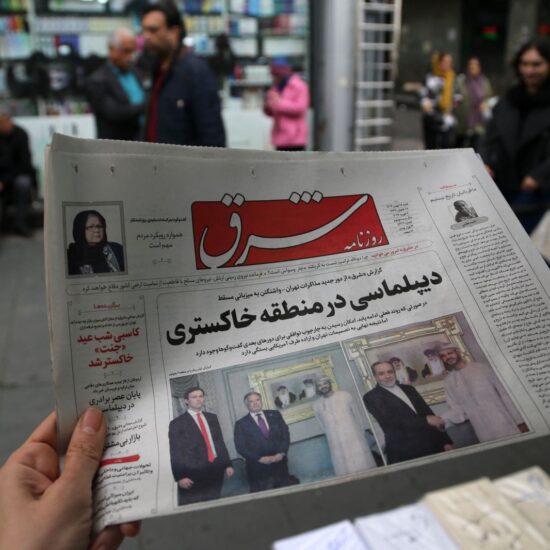
Navigating complexities in the global quest for a solution to the Israeli-Palestinian conflict in the face of the war on Gaza.
In the wake of the recent war on Gaza, the international community, led by nations such as the United States and the United Kingdom, has strongly advocated for a renewed push towards a two-state solution to address the Israeli-Palestinian issue. This consensus has emerged as a potential pathway to ending the long-standing violence which was filled with injustices and the breaking of international law. It envisions a future marked by pragmatism and reconciliation, where the rights of the Palestinian people are acknowledged through the establishment of a sovereign State of Palestine coexisting alongside Israel. This vision seeks to balance the complex dynamics of the region and aims to offer a somehow equitable solution to a conflict that has persisted for almost a century.
However, the Israeli Prime Minister, Benjamin Netanyahu, has rejected these calls. Netanyahu’s response comes at a time when the US, under the leadership of President Biden, has been emphasizing the need for a two-state resolution, a policy approach starkly different from Netanyahu’s vision for the region. Since the formation of the latest Netanyahu’s government, the US administration has consistently advocated for a two-state solution to the Israeli-Palestinian situation. This period, however, has seen a concerted effort from the US, along with other regional players, to formulate a comprehensive deal that includes the establishment of this two-state solution. Nevertheless, this US-led diplomatic approach has encountered resistance from Netanyahu, who has notably distanced himself from the two-state solution framework. Netanyahu’s stance, diverging from the international consensus, underscores a significant point of contention between the Israeli government and its key allies, particularly the United States.
Netanyahu’s defiance is supposedly rooted in his conviction that Israel should not halt its offensive in Gaza until it achieves a complete victory over Hamas. This approach directly contradicts the international community’s growing calls for de-escalation and a move towards diplomatic negotiations. Netanyahu’s unwavering stance on continuing military operations and his dismissal of the concept of a Palestinian state not only signify a growing discord between Israel and the United States, but they also raise questions about his underlying motivations. Observers and critics suggest that Netanyahu’s position may be more closely tied to his own political survival and career interests rather than the broader welfare of the Israeli populace, which he professes to safeguard.
This perspective posits that the cessation of the conflict could potentially have personal political ramifications for Netanyahu, influencing his approach to the peace process and conflict resolution. Such a viewpoint suggests that his strategies might be driven less by the pursuit of long-term security and peace for Israel, and more by immediate political considerations and the preservation of his leadership position.
This discord also aligns with his far-right coalition government committed to West Bank settlement expansion. Such policies have been opposed by the Biden administration as they are seen as detrimental to the peace process. Despite this opposition, the US administration has not taken concrete steps to curb Israel’s actions; in fact, it has expedited the provision of military aid. This move has been perceived by some as reinforcing the notion that Israel operates with a certain level of impunity, even when its actions are at odds with its staunchest ally and supporter.
Contrastingly, the United Kingdom’s recent announcement, contemplating the recognition of a Palestinian state irrespective of a comprehensive peace solution, may signify a shift in the international community’s response to Israeli policies. For the first time, there appears to be a concerted effort to pursue a resolution so resolutely that it could isolate Israel’s right-wing government, compelling it to conform or face international isolation.
With Netanyahu unlikely to yield, a change in US policy, particularly withholding military aid, could be a pivotal move, and should be expected next. This will hopefully pave the way for a new Israeli leadership, one that might seize the political opportunity to end the violence in the Middle East. Such a leader could initiate immediate and direct dialogue aimed at establishing lasting peace in the region, including the creation of a Palestinian state. While this scenario remains speculative, it encapsulates a growing call for a more proactive and decisive international stance in addressing the enduring Israeli-Palestinian situation. This issue extends beyond regional boundaries, having significant implications for global security and stability. The world’s increasing advocacy for a resolution not only reflects a commitment to peace in the Middle East but also acknowledges the broader impact of this longstanding conflict on the international stage.
Ramzi Abou Ismail is a political psychologist and researcher at the University of Kent.








